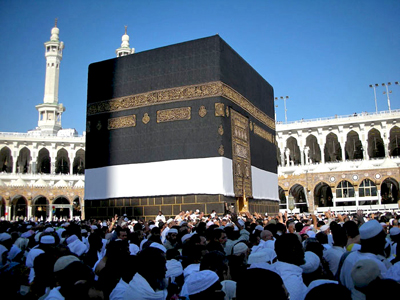
Demand is expected to be heavy until the end of the Ramadan season.
This year, the peak season coincides with the summer holidays. As such, a large number of vacationers, including Saudis, are expected to perform Umrah.
A leading hotelier in Makkah said that foreign pilgrims are less compared to last year thanks to factors such as the World Cup and the MERS.
“The majority of pilgrims come from the Kingdom, as well as from the Gulf countries,” he said. “Other pilgrims come from countries such as Egypt, Turkey, Algeria, India, Pakistan, Sri Lanka, Malaysia and Indonesia.”
Accommodation at five-star hotels skyrockets to anywhere between SR31,000 to SR40,000 for a 10-day period near the end of Ramadan.
There are nearly 275 Umrah travel operators spread out in the capital, but their largest concentration is located in the city center in Batha.
Riyadh’s Dawah Center has arranged 45 coaches to ferry Umrah pilgrims from the capital free-of-charge.
Moulavi Ramzan from the center told Arab News that program beneficiaries are mainly singles from Asian and Arab countries.
Accommodation, transport and iftar will be given to the pilgrims, he said.
A return fare from Riyadh to Makkah by luxury coach, including accommodation in Makkah, will cost SR160 per pilgrim. An additional charge of SR20 will be incurred if the pilgrim opts to visit the Prophet’s Mosque in Madinah en route to Makkah.
Accommodation can be upgraded to four-star standards for a mere SR100.
According to a sales executive from Al-Rushd, a travel operator in the city, the trip to Makkah and Madinah sets out at 4 p.m. from Riyadh on Wednesday and ends on Friday at midnight.
Each family is given a large room, while bachelors are accommodated on a sharing basis, with three pilgrims per room. Children under 12 have to pay half the fare. “We will provide three-star hotel accommodation for our customers,” he said.
Another travel agent said a five-day package to Makkah and Madinah, including travel and accommodation, will cost a pilgrim only SR250.
The offer includes a two-day stay at a three-star hotel in Madinah and another two-day lodging at a similar hotel in Makkah. The journey begins on Monday and ends on Friday.





Comments
Add new comment